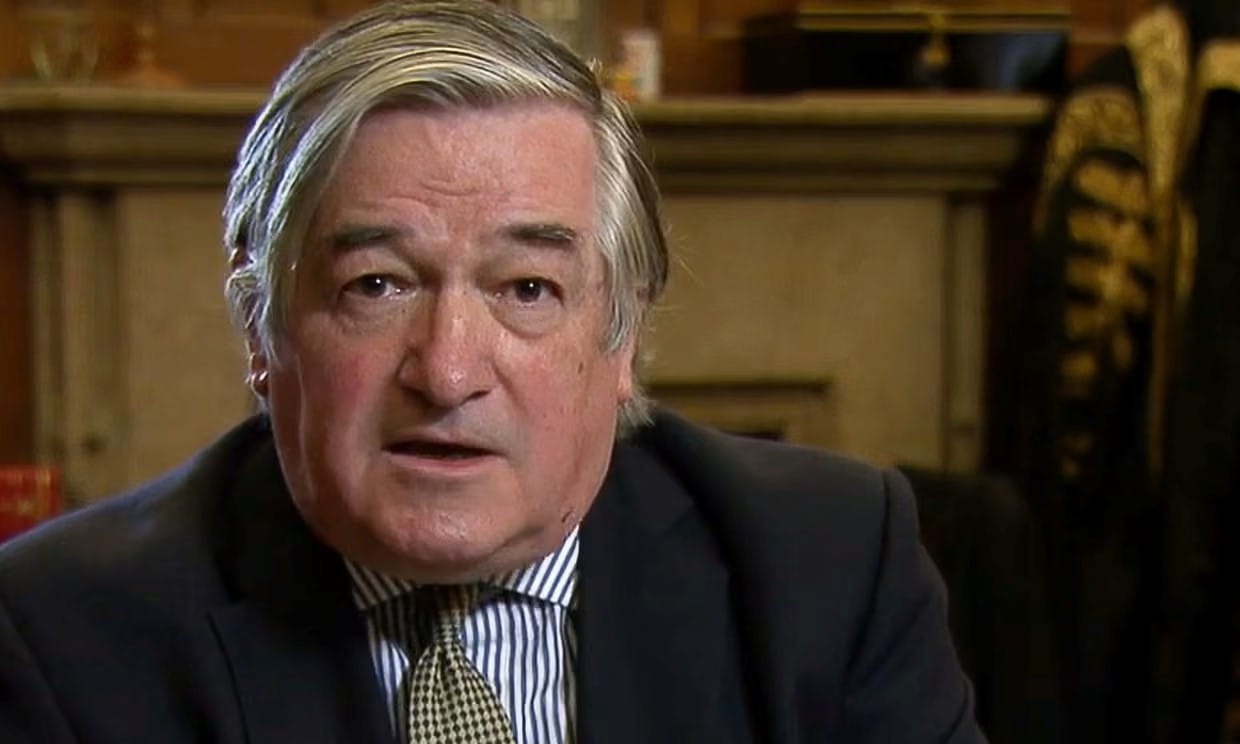Five Years Since ‘What About Me?’ A Call for a Commissioner for Separated Families
On Monday, 17 November 2025, the Family Solutions Group (FSG) marked a significant milestone, bringing together colleagues, partners and supporters to call for a Commissioner for Separated Families and to reflect on five years of work dedicated to improving the experience of separating families.
On Monday, 17 November 2025, the Family Solutions Group (FSG) marked a significant milestone, bringing together colleagues, partners and supporters to call for a Commissioner for Separated Families and to reflect on five years of work dedicated to improving the experience of separating families.
Formed in 2020 by the then Mr Justice Cobb, the FSG is a voluntary collective of multi-disciplinary professionals. Its mission remains clear: highlight the voice of the child and champion better-managed separation so children’s needs are recognised, protected and prioritised.
Bridging sectors, amplifying children’s voices
Over the past five years, the FSG has built vital connections across sectors that often operate in silos, encouraging more humane, collaborative, child-centred approaches. Their publications include What About Me?, Language Matters, A Child’s Right to Matter, Children’s Voices in Family Separation and the Birmingham Family Hub Pilot.
A new video was launched at the event. It reflects on their work and the reasons why a Commissioner for Separated Families is needed. This can be viewed here.
Cobb LJ: a voice of insight
Lord Justice Cobb spoke about the work of the Private Law Working Group, which led to the formation of the Family Solutions Group, and the importance of accessible, joined-up support for separating families. There’s a need for a Family Solutions System operating alongside the access to court:
‘It is extremely important, for all of us, that families who are going through that painful experience of separation, know where to find the services to support them. And children know where the services are to support them.’
Helen Adam, chair of FSG: five-year reflection
The What About Me? report was published five years ago. What has happened since?
A first difficulty was to find the right point in government to respond to the report recommendations. Which department will protect family relationships and promote children’s rights and needs? This does not all fall at the door of MoJ.
It has also been an unsettled time in government with constantly changing ministers over four changes of government, plus global instability and economic difficulty. This is not an easy time for a group to pop up and ask for a well-oiled system for family separation.
Quite apart from that, it’s a difficult ask. Talking about managing separations well is often seen as promoting separations. It’s a subject which people prefer to avoid, left in the ‘too difficult’ pile, an awkward silence. That has been the FSG experience many times.
Rather than wait for change to come from the top, the FSG has worked with others to improve the landscape for children and young people, wherever they can. There’s plenty within the broken system, which is good, but a difficulty is that much of it is disconnected and siloed. There are new family procedure rules to promote early resolution, but not all judges know about them. There are reducing parental conflict programmes, there’s legal aid for mediation and a voucher scheme, there are separated parent programmes, contact centres, co-parenting apps and parenting plans. It's not all bleak.
Again and again, the FSG have found that the right hand doesn’t know what the left hand offers:
- The legal profession do not know about the DWP reducing parental programmes.
- Early help teams don’t know what a MIAM is or about the mediation voucher.
- Magistrates don’t know about the availability of separated parent programmes.
- Schools are often the first to hear of any separation. They are on the front line when issues play out, but they have no knowledge of any of this.
- Worse still is that children and young people have no information. UK Youth Parliament found that 74% of young people would not know where to turn for information if parents separate.
Into this fractured space, the FSG have tried to join the dots, to light up this space and promote greater awareness of children’s rights, needs, welfare, and the full range of services available. FSG tried to break down silos and encourage a more holistic approach from all.
- One of the first silos to tackle was the disconnect between domestic abuse professionals and mediators. The MADA network was set up, to promote greater understanding and co-working between the two sectors, to promote safe family resolutions where appropriate.
- FSG published a paper on language, calling for a reframed language of family separation to remove the hostile battle terminology. Language affects mindsets, so the way in which family separation is talked about is critical. Language Matters.
- FSG worked with schools and UK Youth Parliament to learn more about their experience: ‘A Child’s Right to Matter’. On the back of this FSG supported the Parents Promise to create an education resource, freely available to all schools.
- FSG created PSHE materials, so schools can provide children and young people with an understanding of their rights, often completely overlooked.
- On the same theme, FSG worked with a dynamic group of solicitors to promote the rights of children to be consulted, when lawyers are acting for their parents. ‘Children’s Voices in Family Separation’ provides an authorised protocol for any solicitor to use.
- FSG worked with both DfE and MoJ civil servants, to support initiatives to promote the earlier resolution of issues, wherever safe and appropriate.
- FSG set up a charity to run a Directory of Separated Parent Programmes, so anyone – parent, school, GP, mediator, solicitor, contact centre, magistrate, anyone – can easily find one that suits their need. The aim is to make these visible when until now they’ve been largely unknown. Separated Parenting Programme Directory.
- They’ve engaged with family hubs, running a ‘Family Solutions Drop-In’ pilot in Birmingham earlier this year. Parents came into the Drop-In who simply didn’t know where to turn when communication with an ex broke down, needing a helping hand to point them to services where they can resolve things. More mediators are needed to provide this type of early separation help in hubs.
- There is work in progress for a report due out next year, to look at the role of the modern family lawyer, the skills needed and where professional duties lie. As things stand in Private family law, when lawyers are retained, the parents are represented but the child is not. Who, in that dynamic, is called to account for child welfare? A huge topic to debate, and one is lined up for next year.
- Linked to this, another silo is the disconnect between legal professionals who do finance and those who do children work. The Law Commission published an important scoping report last year on finances and, however excellent it was on finances, there was no acknowledgment given to the impact on child welfare by the manner in which finances are resolved. This was a scoping report on finances, and the LC consulted with the finance legal professionals. The legal profession may have lines between different parts of family life, but children live through it all. Of course they are affected by the way the family finances are resolved, as this has a huge impact on their family relationships.
- Something else in the pipeline, arising out of the recent announcement on the presumption of Parental Involvement, is to seek an amendment to the Children Act to create a presumption of children’s involvement; for their meaningful consultation when decisions are made which affect them.
The FSG has teamed up with many others working to improve this post-separation landscape. There is a grass roots movement to see change; to make family separation more humane, less brutal, and fully focused on the rights and needs of children.
Much of the purpose of the evening was to bring people together and say thank you.
Event highlights – new initiatives to support separating families
Representatives from a wide range of organisations working with separating families came together to share progress and strengthen connections across the sector.
Speakers included:
- Shakira Paulas, introducing Your Direction, a five-session workshop series for young people whose parents have separated, and Split Happens, an AI-powered online space launching in January, developed with amicable, Your Direction, Voices in the Middle, and others.
- Marcie Shaoul, presenting a new Directory for Separated Parenting Programmes, launched this week.
- James Hayhurst, outlining the #ParentsPromise – Education Initiative, providing free resources for schools.
- NACCC & OFW, announcing their free Parenting Plan template.
- Dr Angharad Rudkin from Only Mums & Dads, sharing progress on the HATCAT ‘How Are The Children Assessment Tool’ (HATCAT | OMD Training).
- Dr Samantha Callan from Family Hubs Network, speaking about embedding early separation support in family hubs, referencing the Birmingham Family Hub Pilot.
- Naz Mirza, sharing work underway in Kent to link early support across hubs and schools through a public health framework and the development of the Family Services Foundation.
- Stephen Wildblood KC, discussing his play Daisy Through the Looking Glass and the use of creative arts to reframe thinking around separation.
Carlie Norris, new chair of FSG: looking ahead
As FSG enters its next phase, its focus remains on collaboration and child-centred practice. It looks to a future where children are at the centre, where their rights and needs are the starting point in any separation, and both they and their parents are held through difficult times and given the help they need.
A human response to a human event, which has children at the centre.
The group has two key asks:
- Break the silence – It’s time to talk openly about family separation and how to manage it well.
- Support the call for a Commissioner for Separated Families, to ensure this area receives the leadership and coordination it requires. The film is there to be shared: Call for a Commissioner.
In summary
The event was a moment of reflection, gratitude and renewed purpose. The past five years show what is possible when dedicated organisations and individuals unite around a shared mission.
To those new to the FSG’s work, explore the website, watch the video, and support the next chapter in improving outcomes for separating families and their children.





